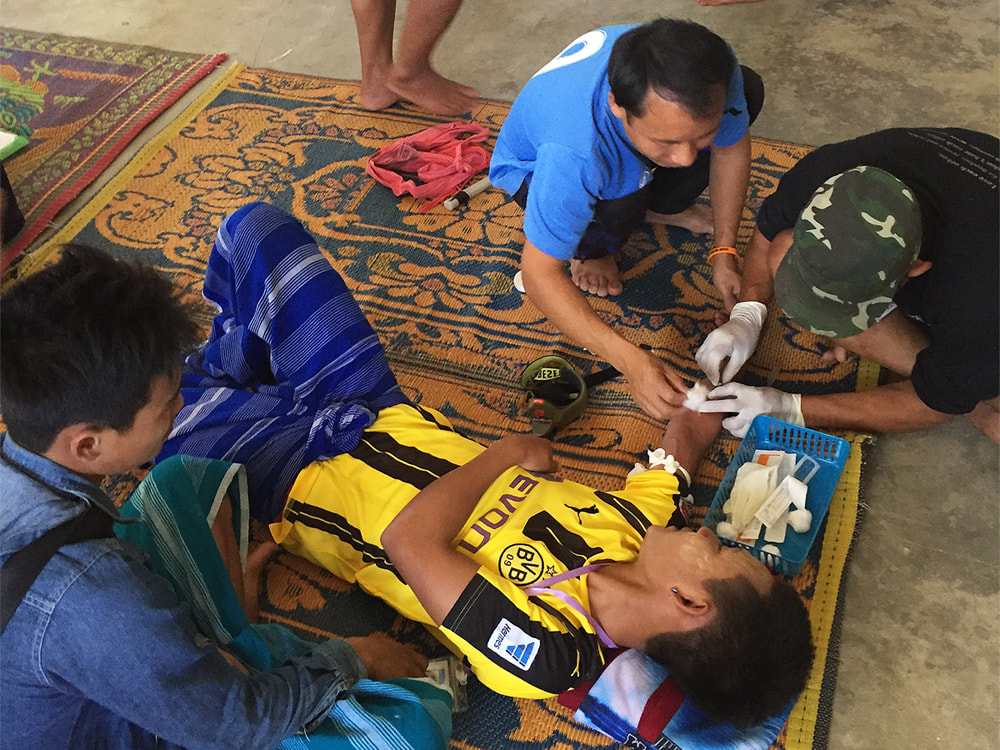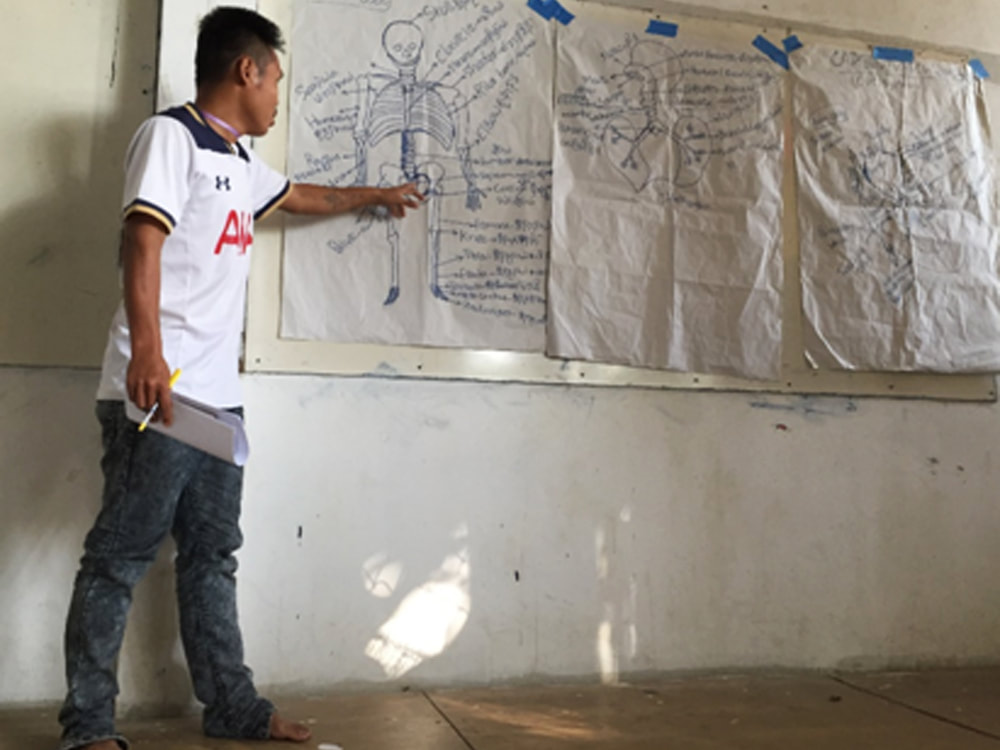|
On February 3, 2018, the six-day Trauma and Emergency Management training workshop held at the Mae Tao Clinic in Mae Sot, Thailand, successfully drew to a close. The workshop was attended by 33 medics from 15 clinics serving conflict affected, under-served and hard-to-reach communities in southeast Myanmar where access to medical care for traumatic injuries is limited and landmine contamination remains high. This was the 19th consecutive year that this workshop has been held. The workshop was led by a volunteer team of U.S. and Australian medical personnel, including Emergency Medicine physicians and nurses, in partnership with senior medics from the Karen Department of Health and Welfare (KDHW). The workshop was supported by Community Partners International (CPI) and Medical Teams International (MTI). During the workshop, the medics learned how to manage patients with major and minor traumatic injuries and emergency medical illnesses using frameworks and techniques specifically tailored to the remote and low-resource context in which they operate. Training sessions covered a range of key topics including anatomy and physiology; patient examination; antibiotic use; causes, identification, and treatment of shock; childhood disease including neonatal sepsis, meningitis, and abdominal causes of infection in a pediatric patient; anesthesia; suturing and wound management; management of traumatic injuries in pregnant patients; assessment of pregnant patients and management of normal and traumatic childbirth; identification and treatment of infections; IV and fluids administration; splinting; chest tubes and creation of surgical airways; bleeding control; assessment of limb injuries; surgical practice; causes and treatment of abdominal pain and diarrhea; rehabilitation and nutrition; and disaster and mass casualty management. During the workshop, partial data was collected from medics concerning the number and type of cases treated by the clinics where they are based in southeast Myanmar. Though incomplete, the data identified a total of 294 patients with major traumatic injuries treated during 2017, almost double the number recorded in 2016. Causes of injuries included gunshots, landmines, cuts and stab wounds, vehicle accidents, falls, abscesses, fractures and dislocations, animal bites, crush injuries, and drowning.
At the close of the workshop, medics were provided with a range of supplies supported by Community Partners International (CPI), Medical Teams International (MTI), and Hands of Hope, including Gigli saws, scalpels, blades, curved Kelly clamps, bandage scissors, suture material, syringes, hemostats, stethoscopes, gloves, cast padding, plaster of Paris, and bandages. They will now return to their communities to continue their valuable work helping to save the lives of people with traumatic injuries and emergency illnesses in conflict-affected and hard-to-reach areas of southeast Myanmar. Comments are closed.
|
AuthorCPI Admin Archives
July 2024
Categories
All
|
|
|
COMMUNITY PARTNERS INTERNATIONAL
580 California St Fl 16, Ste 1658, San Francisco, CA 94104-1068, USA [email protected] +1 510 225 9676 We are a registered nonprofit 501(c)(3) Public Charity. TAX ID 94-3375666 |
©
Community Partners International



 RSS Feed
RSS Feed
